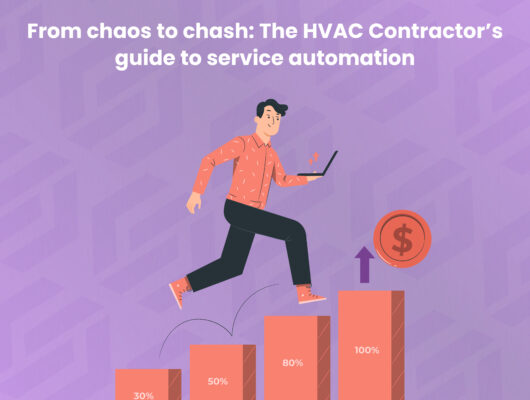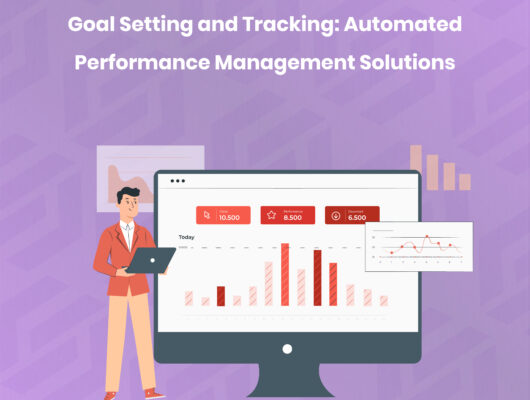Picture this: It’s 4:30 PM on a Friday, and your inbox is flooded with 47 emails—all part of a single thread trying to schedule one interview. The candidate suggested Tuesday at 2 PM, but the hiring manager is in client meetings all afternoon. The department head prefers mornings, but only on Wednesdays. The HR coordinator is juggling conference room availability while the candidate just informed everyone they’re unavailable next week due to a family emergency.
Sound familiar?
The average interview scheduling process involves 8-12 email exchanges and takes 3-5 business days to complete. For high-volume hiring companies, this translates to hundreds of hours spent annually on what should be a simple task.
This coordination nightmare isn’t just frustrating—it’s costly, inefficient, and damaging to your employer brand. But there’s a solution that’s transforming how modern companies handle interview logistics: automated interview scheduling.
The Hidden Costs of Manual Interview Scheduling
Time Drain Analysis
Let’s break down the real cost of traditional interview scheduling:
Per Interview Coordination:
- HR coordinator time: 45 minutes average
- Hiring manager time: 15 minutes
- Candidate time: 20 minutes
- Administrative follow-up: 10 minutes
- Total time investment: 90 minutes per interview
For a company conducting 500 interviews annually:
- Total hours spent on scheduling: 750 hours
- Cost at $50/hour average: $37,500 annually
- This doesn’t include opportunity costs, delays, or rescheduling scenarios
The Domino Effect of Scheduling Delays
Candidate Experience Impact:
- 67% of candidates report frustration with lengthy scheduling processes
- 42% of top candidates withdraw from consideration due to scheduling delays
- Average time-to-hire increases by 8-12 days due to scheduling bottlenecks
Internal Productivity Loss:
- Hiring managers spend 23% of their recruiting time on scheduling coordination
- HR teams report scheduling as their #2 most time-consuming task
- Interview panel members frequently experience double-bookings and last-minute changes
Revenue and Opportunity Costs:
- Delayed hiring means prolonged productivity gaps
- Top candidates often accept competing offers during scheduling delays
- Rush hiring decisions due to timeline pressure lead to poor fits
Enter Automated Interview Scheduling: The Game-Changer
Automated interview scheduling systems use intelligent algorithms to coordinate calendars, preferences, and availability across multiple stakeholders. These platforms integrate with existing calendar systems, applicant tracking systems (ATS), and communication tools to create a seamless scheduling experience.
How Automated Interview Scheduling Works
1. Calendar Integration The system syncs with all stakeholders’ calendars (Google Calendar, Outlook, etc.) to identify real-time availability. It considers time zones, working hours, and blocked time automatically.
2. Intelligent Conflict Resolution Advanced algorithms analyze multiple calendars simultaneously, identifying optimal meeting times that work for all participants while considering preferences and constraints.
3. Self-Service Candidate Portal Candidates receive a personalized link where they can view available time slots and select their preferred interview time, eliminating the need for email coordination.
4. Automated Notifications The system sends automatic confirmations, reminders, and updates to all participants, including calendar invites with location details and video conferencing links.
5. Dynamic Rescheduling When changes occur, the system automatically identifies alternative times and notifies all participants, handling the entire rescheduling process without human intervention.
Industry-Specific Applications and Benefits
Technology Companies
Unique Challenges: Multiple technical rounds, diverse panel members, coding assessments Automation Benefits: Coordinates complex multi-round interviews, integrates with coding platforms, manages technical panel availability
Healthcare Organizations
Unique Challenges: Shift schedules, licensing requirements, multiple locations Automation Benefits: Accommodates 24/7 schedules, tracks certification requirements, manages multi-location interviews
Financial Services
Unique Challenges: Regulatory compliance, senior executive availability, confidentiality requirements Automation Benefits: Ensures compliant scheduling, prioritizes executive calendars, maintains security protocols
Manufacturing & Industrial
Unique Challenges: Shift work, floor manager availability, safety requirements Automation Benefits: Coordinates around production schedules, manages safety briefings, accommodates shift workers
Key Features of Modern Automated Scheduling Systems
Smart Calendar Management
- Multi-calendar sync across different platforms
- Time zone intelligence for global teams
- Blackout period recognition for holidays and company events
- Buffer time management between meetings
Candidate Experience Optimization
- Mobile-responsive scheduling for candidate convenience
- Automated reminders via email and SMS
- Easy rescheduling options with minimal friction
- Interview preparation resources automatically delivered
Advanced Analytics and Reporting
- Scheduling efficiency metrics and bottleneck identification
- Candidate experience tracking and feedback collection
- Interviewer utilization reports and capacity planning
- Time-to-hire impact analysis and ROI measurement
Integration Capabilities
- ATS integration for seamless candidate data flow
- HRIS connectivity for employee information sync
- Video conferencing setup with automatic link generation
- Room booking systems for in-person interviews
Implementation Roadmap: Getting Started
Phase 1: Assessment and Planning (Week 1-2)
Current State Analysis:
- Document existing scheduling processes and pain points
- Calculate current time and cost investments
- Identify key stakeholders and their requirements
- Assess technical infrastructure and integration needs
Goal Setting:
- Define success metrics and improvement targets
- Establish timeline for implementation and rollout
- Identify pilot groups for initial testing
- Set budget parameters and ROI expectations
Phase 2: Platform Selection and Setup (Week 3-4)
Evaluation Criteria:
- Integration compatibility with existing systems
- Scalability for current and future hiring volumes
- User experience for both internal teams and candidates
- Security and compliance requirements
Configuration Process:
- Calendar integration and synchronization
- User role setup and permissions
- Scheduling rules and preferences configuration
- Notification templates and communication settings
Phase 3: Pilot Testing (Week 5-6)
Pilot Program Design:
- Select 2-3 departments for initial testing
- Train pilot users on system functionality
- Run parallel processes for comparison
- Gather feedback from all stakeholders
Optimization Phase:
- Adjust scheduling rules based on pilot feedback
- Refine notification templates and timing
- Address integration issues and technical challenges
- Document best practices and user guidelines
Phase 4: Full Rollout (Week 7-12)
Training and Change Management:
- Comprehensive training for all HR team members
- Hiring manager orientation and support
- Candidate communication about new process
- Create support documentation and resources
Continuous Improvement:
- Monitor usage metrics and system performance
- Regularly collect user feedback and suggestions
- Update processes based on changing needs
- Expand functionality and integrations over time
Overcoming Common Implementation Challenges
“Our Hiring Process is Too Complex for Automation”
Reality Check: Modern scheduling systems handle multiple interview rounds, diverse panel compositions, and complex requirements. The key is proper configuration and gradual implementation.
Solution: Start with standard interview types and gradually add complexity. Most systems can accommodate unique requirements through custom rules and workflows.
“Candidates Won’t Like the Impersonal Approach”
Reality Check: Candidates actually prefer self-service scheduling. A recent study showed 78% of candidates prefer choosing their own interview times rather than coordinating through email.
Solution: Maintain personal touch through customized communications while leveraging automation for logistics. The result is faster, more convenient scheduling with better candidate experience.
“What About Last-Minute Changes and Emergencies?”
Reality Check: Automated systems handle changes more efficiently than manual processes. They can instantly identify alternative times and notify all parties simultaneously.
Solution: Configure emergency protocols and escalation procedures. Most systems include mobile apps for real-time updates and quick changes.
“Integration with Our Existing Systems Seems Complicated”
Reality Check: Modern scheduling platforms are designed for integration. Most offer pre-built connectors for popular ATS and calendar systems.
Solution: Work with experienced implementation consultants who understand your existing tech stack. Proper integration planning prevents most technical challenges.
Measuring Success: Key Performance Indicators
Efficiency Metrics
- Average time to schedule interviews (target: under 24 hours)
- Email volume reduction (typical: 70-80% decrease)
- HR coordinator time savings (target: 50%+ reduction)
- Scheduling-related errors (aim for 95% reduction)
Quality Metrics
- Candidate satisfaction scores for scheduling experience
- Interviewer satisfaction and convenience ratings
- No-show rates and last-minute cancellations
- Rescheduling frequency and reasons
Business Impact Metrics
- Time-to-hire improvement (typical: 15-25% reduction)
- Cost per hire reduction from efficiency gains
- Candidate acceptance rates (often improves 10-20%)
- Hiring manager productivity and satisfaction
Future of Interview Scheduling: What's Next
Emerging Technologies
AI-Powered Optimization: Machine learning algorithms that learn from scheduling patterns to suggest optimal times and predict scheduling conflicts.
Voice-Activated Scheduling: Integration with virtual assistants for hands-free interview coordination.
Predictive Analytics: Systems that anticipate scheduling challenges and proactively suggest solutions.
Integration Expansions
Travel and Accommodation Booking: Automated coordination of candidate travel for multi-day interview processes.
Skills Assessment Integration: Automatic scheduling of technical assessments and coding challenges.
Background Check Coordination: Seamless integration with background screening processes.
Taking Action: Your Next Steps
The interview scheduling transformation is happening now. Companies that embrace automated scheduling are building competitive advantages in talent acquisition while their competitors struggle with outdated email chains and manual coordination.
Immediate Actions You Can Take Today:
- Calculate Your Current Costs: Track the time your team spends on interview scheduling for one week
- Identify Your Biggest Pain Points: Survey your hiring managers and candidates about scheduling frustrations
- Research Available Solutions: Explore scheduling platforms that integrate with your existing systems
- Start with a Pilot: Test automated scheduling with one department or position type
Ready to Eliminate the Email Chain Forever?
The statistics are clear: automated interview scheduling reduces coordination time by 90%+, improves candidate experience, and saves thousands of dollars annually. The question isn’t whether to implement this technology—it’s how quickly you can get started.
Ready to transform your interview scheduling process? Contact our HR automation specialists for a personalized assessment of your current scheduling challenges. We’ll show you exactly how automated scheduling can streamline your recruitment process and improve your hiring outcomes.
Schedule Your Consultation Today
Join the growing number of companies that have eliminated the interview scheduling email chain forever.






1 Comment